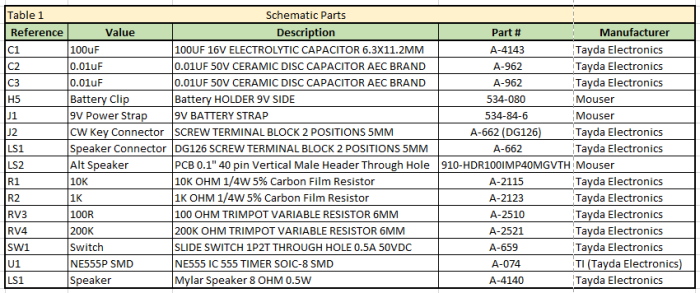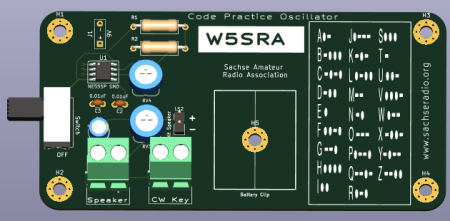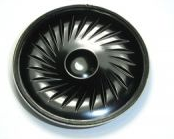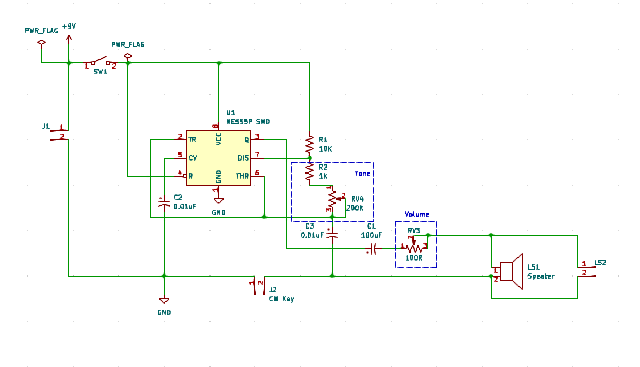Difference between revisions of "CW Practice Oscillator Kit"
| Line 1: | Line 1: | ||
'''Code Practice Oscillator ''' <br> | '''Code Practice Oscillator ''' <br> | ||
| − | [[File:3D-CW-Code-Practice-Osc.PNG |450px ]] | + | [[File:3D-CW-Code-Practice-Osc.PNG |450px |left ]] |
| + | [[ File:Speaker-8-ohm-Mylar.PNG |250px | ]] <br> <br> | ||
'''Microrusty.com 2024''' <br> | '''Microrusty.com 2024''' <br> | ||
Revision as of 04:19, 23 February 2024
Code Practice Oscillator
Microrusty.com 2024
I decided to make a CW practice board for Morse Code training for my local HAM club. I have donated all 10 boards to the club. It was a simple process to use KiCad 7.0 to design the board. I am not going to explain how to use KiCad in this wiki page since I have other wiki pages explaining how to use KiCad.
This project uses a NE555 timer SMD SOIC-8 Chip that produces a square wave that can be adjusted between 300Hz and 1KHz The power source is a 9Volt battery that is connected to J1 via a 9V BATTERY STRAP from Mouser Electronics. This Kit was designed to be adjustable for the user to change to the tone to their preferred listening levels. RV4 is a 200K ohm variable resistor that controls the tone between 300Hz to 1KHz. RV3 is a 100 Ohm variable resistor that controls the volume. The CW key is connected to a 5mm Terminal block that is label CW Key This Kit comes with a 55mm Speaker that is connected LS2 (Version2 Bd) - J3 (Version1 Bd) and placed underneath the bottom of the PCB. There is another speaker connector that uses a 5mm Terminal block with the label Speaker for larger speakers.
Code Practice Oscillator Schematic
Code Practice Oscillator Schematic Parts



